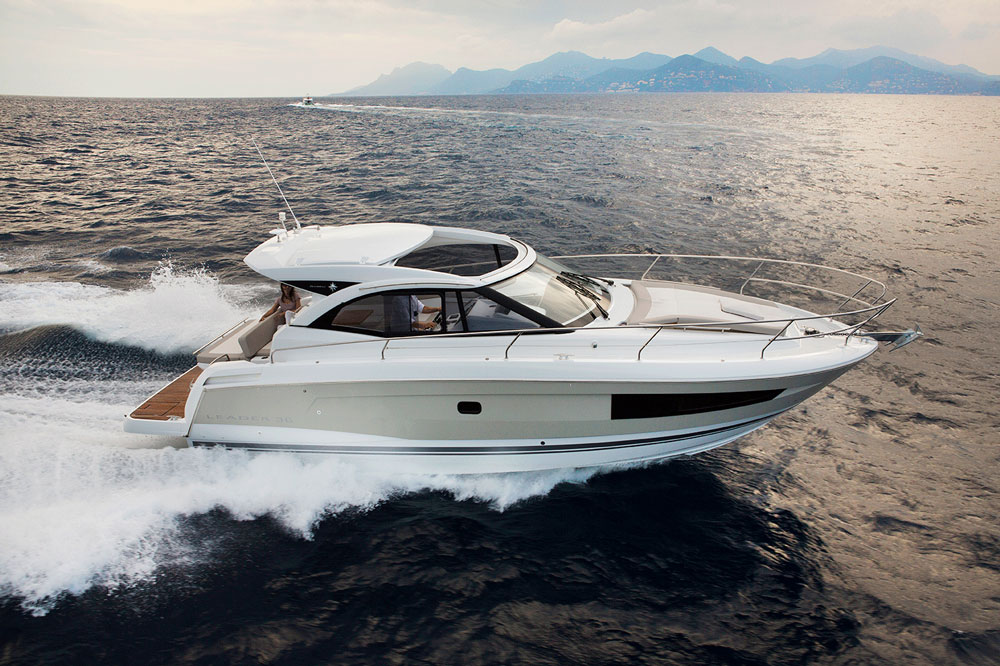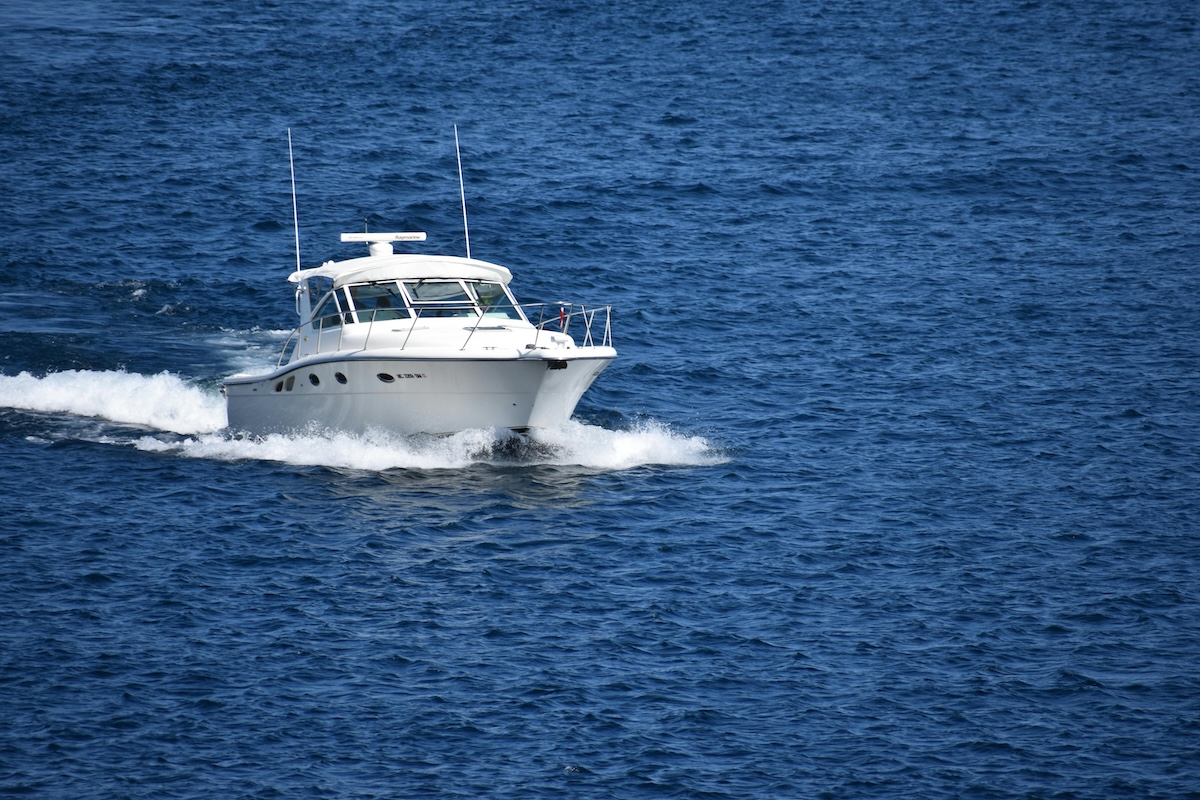Engine hassles getting in the way of your time on the water? Bring your boat to Willy’s and we’ll get your diesel engine running at its best. With our expert repairs and servicing, you’ll get better reliability, more power and smoother sailing—giving you peace of mind, so you can relax and spend more time enjoying the water.


Why expert care matters for your boat’s diesel engine
Harsh conditions like saltwater, heavy loads and constant vibrations take a toll on your boat’s diesel engine. They put extra strain on key components such as the turbo, fuel injectors and cooling systems.
Specialised care prevents breakdowns and keeps your boat’s performance strong. At Willy’s, we understand the unique demands of marine diesels, and we go the extra mile to make sure your engine runs reliably trip after trip.
How to tell when your boat’s engine is due for a service
Staying on top of regular maintenance and catching small issues early keeps your boat’s diesel engine running reliably. Here are a few signs it’s time to book a service:
If your engine’s struggling to start or cutting out mid-trip, it’s a clear sign something’s not right. Don’t let it leave you stranded—get it checked before it gets worse.
Noticing blue, black or white smoke coming from your exhaust? That’s your engine’s way of telling you it’s not burning fuel properly. A quick service can sort it out before it turns into a bigger issue.
If your boat feels sluggish or isn’t hitting its usual speed, your engine might be struggling with fuel delivery or compression issues. A proper tune-up from Willy’s will get you back to full power.
Experiencing knocking, rattling or rough running? That’s not normal. It could be anything from loose components to internal wear—best to get it looked at by our expert team before it becomes a costly repair.
Our Marine Diesel Mechanic Services
What’s included in our diesel mechanic marine services?
Willy’s Workshop is your trusted partner for expert marine diesel servicing. Whether it’s diagnosing engine troubles, boosting fuel efficiency, or fine-tuning performance, we’ve got the skills and tools to keep your boat in excellent condition.
We provide professional minor and major servicing for marine diesel engines. From routine maintenance to full overhauls, our expert mechanics keep your engine running safely and efficiently.
At Willy’s, we use advanced diagnostic tools to scan your engine’s performance, identify faults and catch early signs of trouble. Whether it’s a misfire, fuel issue or sensor fault, we’ll find it fast and fix it right—saving you time and money.
Fuel quality is crucial for your engine’s performance. We’ll inspect your fuel system, clean injectors, and check filters to ensure your engine gets the clean fuel it needs.
Overheating can be a silent killer for your engine. We’ll flush and inspect your cooling system, checking hoses, pumps, and thermostats. Keeping it in top condition helps prevent overheating, extending the lifespan of your engine and avoiding costly damage.
If your engine’s struggling, we’ll get to the bottom of it with a complete overhaul or repair. From replacing faulty parts to restoring full power, we’ll make sure your engine is running like new. Whether it’s worn-out components or bigger issues, Willy’s can bring your engine back to life, ensuring you’re ready for the water.
Regular oil changes are crucial to keeping your engine performing at its best. We’ll replace the oil and filters with high-quality products, improving lubrication and reducing friction. This simple service helps extend the life of your engine and ensures it performs at its peak.
Looking for more power?
Unlock the full potential of your boat’s diesel engine with a professional tune by the team at Willy’s.
What makes Willy’s Workshop the best choice for your boat?
At Willy’s Workshop, we understand how much you depend on your boat to get you out on the water, not stranded at the dock. That’s why we offer specialised marine diesel services that keep your engine performing at its finest. We take care of everything, from diagnosing issues to improving fuel efficiency, making sure you’re set for every journey. Here’s why you can count on us as your trusted partner:
At Willy’s, we treat every boat like it’s our own. With our diesel expertise, we take the time to carefully assess and maintain your engine, ensuring it’s in the best hands possible. Whether it’s routine servicing or addressing a specific issue, we’re dedicated to providing your boat with the care and attention it deserves.
No tricks or upsells here—just straightforward pricing for the work that’s needed. You’ll always get a clear, honest breakdown so you know exactly what you’re paying for.
We stick to the manufacturer’s guidelines and use top-quality parts to protect your boat’s warranty, all while saving you from those expensive dealer markups. Expert service at a fraction of the cost—that’s what we’re about at Willy’s.
From fuel system checks to engine performance tuning, our servicing covers everything to keep your boat in prime condition. When you trust us with your boat, we make sure everything’s spot on for safe, reliable sailing.

Testimonials
What our customers have to say
FAQs
Got questions about marine diesel mechanics? Our FAQ section has all the answers to help you understand our services and how we can keep your vessel running smoothly.
How often should I schedule a marine diesel service?
Keeping your diesel in top condition means regular check-ups. For most boats, we recommend a service every 100 to 200 engine hours. But hey, every vessel is different, so we can tailor a schedule that suits how much you’re out on the water and what kind of conditions you’re facing.
Do you offer emergency repair services for marine diesel engines?
Yes, if your engine’s giving you trouble out at sea, we’ve got your back. We offer emergency services to get you back in action quickly, whether you’re in the marina or in the middle of a long voyage.
Can you improve the fuel efficiency of my marine diesel engine?
Definitely! We know fuel’s not cheap, and we’re all about making your engine run smoother and more efficiently. From tuning to optimising power delivery, we’ll help stretch your fuel and keep your boat performing at its best.
Do you provide mobile marine diesel mechanic services?
Absolutely! Can’t make it to the shop? No worries. Our mobile mechanic service means we’ll come to you—whether you’re docked, anchored, or stuck in a remote spot—saving you time and hassle.
What is the difference between marine diesel and regular diesel?
The biggest difference between marine diesel and regular diesel is the cooling system. Marine diesel engines are cooled indirectly by sea water using a heat exchanger.
Can you use regular diesel in a boat?
Yes, you can use regular diesel in a boat, as most boat engines can run smoothly with it, despite some potential dye and maintenance issues.
What is the disadvantage of marine diesel engine?
One of the drawbacks of a marine diesel engine is its high maintenance and repair expenses on high hour engines, to being loud. These aspects should be taken into account when selecting an appropriate engine for a vessel on waterways.
What type of fuel is marine diesel?
Marine diesel, also referred to as Marine Diesel Oil (MDO), is produced by combining low sulfur distillates with residual products. This results in superior fuel oil of high quality. It typically has anti rust additives also.
Still have questions?
Articles & Resources
Looking for more info? Check out our articles and resources on Marine Diesel Mechanics or get in touch. Our team are on hand to answer your questions.
Get a quote
We’re here to help you with any inquiries.
Get in touch
Our Locations
Sunshine Coast
P: (07) 5619 7869
Text us : 0485 885 957
E: [email protected]
12 Commerce Ave, Warana, 4575
Customer Service Opening Hours:
Monday to Friday – 7:00 AM to 5:00 PM
Brisbane
P: (07) 3377 3421
Text us : 0485 885 957
E: [email protected]
291 Cliveden Avenue, Oxley, 4075
Customer Service Opening Hours:
Monday to Friday – 7:00 AM to 5:00 PM